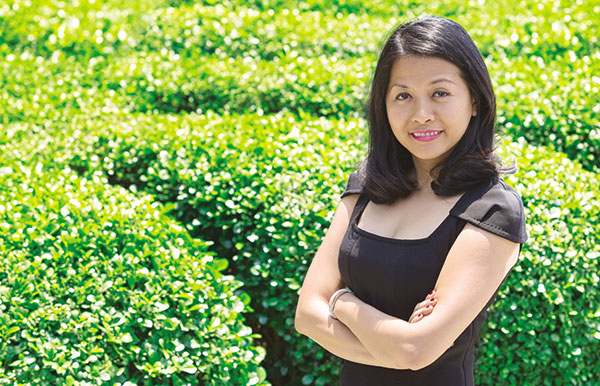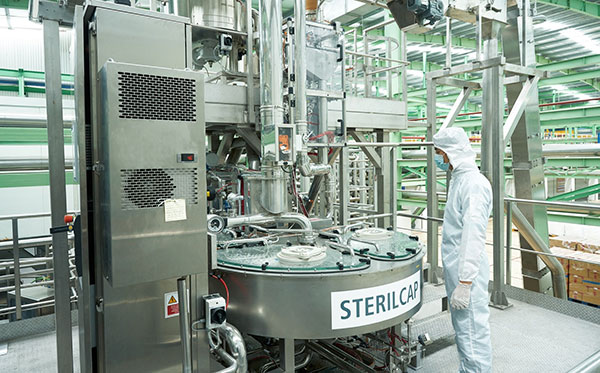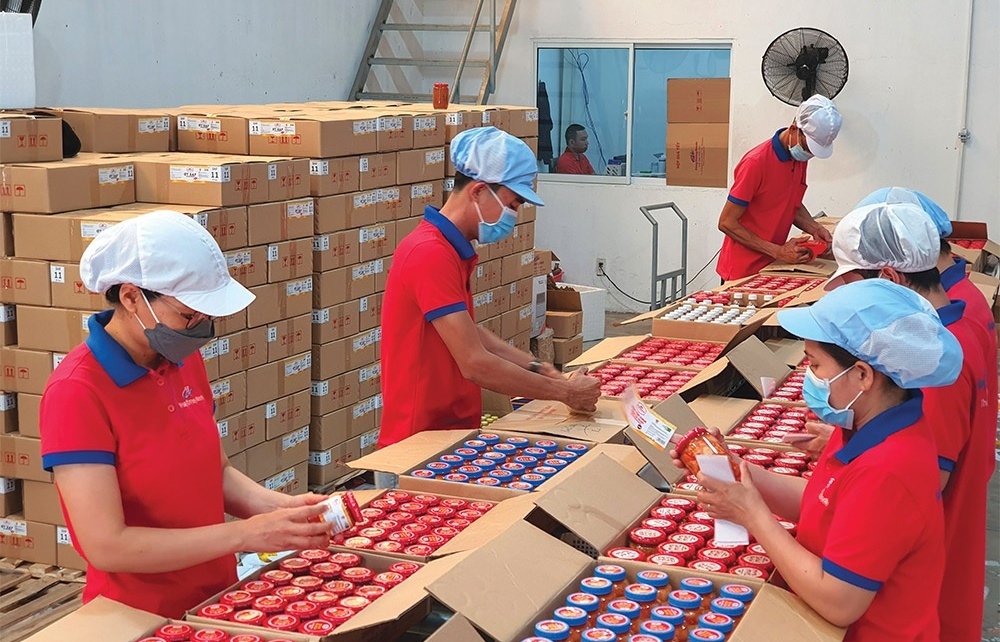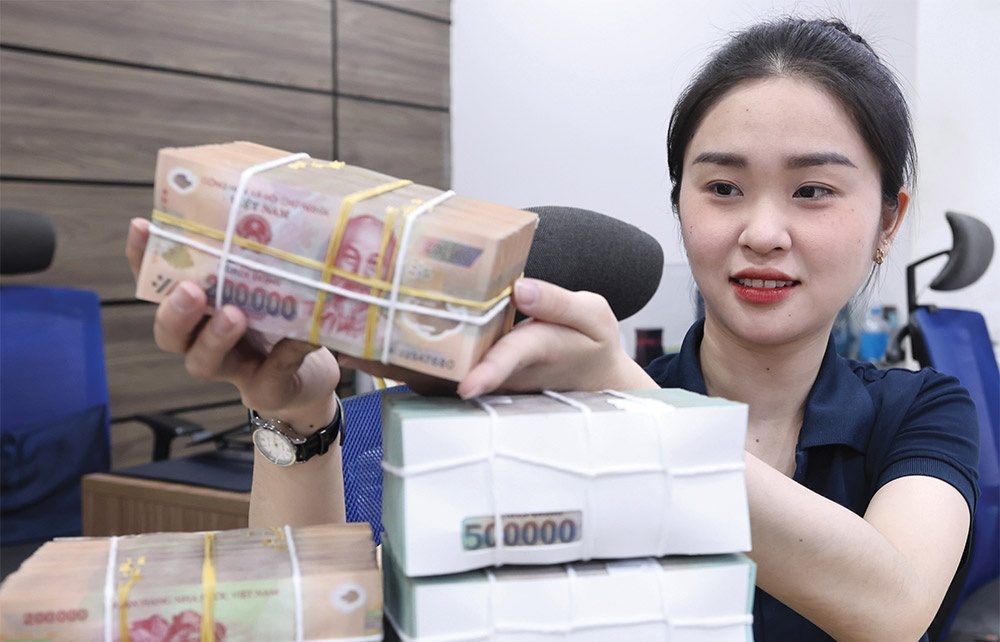Water efficiency and community development: Tan Hiep Phat’s recipe for success
 |
| Tran Uyen Phuong, deputy general director of Tan Hiep Phat Group |
How do you perceive the current state of water environment and the importance of fresh water usage in Vietnam?
Water is an essential resource in people’s lives as well as production activities. We are encountering a dearth of water resources or increasing contamination, particularly in urban and industrial zones. Contaminated water resources have become commonplace in big cities and rural areas. This can be attributed to a combination of factors: climate change implications on the global scale, industrial wastewater being discharged directly into the environment or the inefficient treatment of human or animal (cattle) waste due to backward infrastructure in remote localities.
Overuse of plant protection products, such as pesticides in agricultural production, has also led to rivers, lakes, and canals becoming seriously polluted, directly affecting people’s health and production activities, and badly impacting on the nation’s economic development.
Is the sustainable development target the core reason for Tan Hiep Phat’s spending hundreds of millions of US dollars on employing state-of-the art Aseptic technology for production?
From early years, Tan Hiep Phat has been pursuing the highest efficiency standards and became one of the pioneers of this approach in Asia. We have been committed to contributing to Vietnam’s prosperity by building a leading national beverage brand. Our prime target is being named among Asia’s pioneering businesses in the food and beverage industry, parallel to serving global consumers.
Taking responsibility for the community and the Vietnamese society is one of the six core values navigating our operations. The five remaining values pertain to fidelity; customer-centric business approach; holding the mood ‘today is better than yesterday and tomorrow will be better than today’; the staff members experiencing their mastery at work; and committing to the highest quality standards.
From our stance, a business rising to regional level must be one to take the lead in their field in Asia and having products sold in the global market. Right in Asia, products must become competitive in the world’s most picky markets, such as Japan and South Korea. This has prompted us to hold product quality and consumer health as our number-one priority, our core competitive strength, the means and the prime target for development.
Therefore, for the past nearly 23 years, we have been making constant efforts to expand investments and production, capitalising on state-of-the art beverage production lines and technology. Tan Hiep Phat has chosen to employ modern Aseptic technology for its 10 production lines, investing a total of $300 million.
By virtue of this technology, we believe reaching a new height in product quality is close at hand. This move will inspire other companies on an equal footing to improve the quality of their products in turn. Consumers can only win from this healthy bit of competition.
Technology development is a testament to the core values the group has set from the inception. It has also contributed to materialising our development priorities in Vietnam, to building a green economy for sustainable development and promoting environmental protection.
 |
| The application of Aseptic technology helps Tan Hiep Phat use water resources smartly |
What are the advantages of Aseptic technology with respect to product quality, environmental protection, and water efficiency in production?
Briefly speaking, Aseptic technology ensures total sterilisation throughout the entire production process, from pet bottle preforms to product filling and packaging. The whole process is automatic and takes place in an enclosed and sterile environment that is also environmentally friendly.
This technology not only helps transmit all natural nutrients from materials into the products, but also ensures that no preservatives are used in production, meeting the strictest quality standards in the world.
The application of Aseptic technology in beverage production helps our group use water resources smartly, whereas the application of the Aseptic blow fill (ABF) technology allows us to optimise energy in production. The use of ABF technology, currently the latest blow fill technology in beverage production, helps reduce water usage in production, which also means less wastewater being discharged into the environment.
Not many businesses currently use Aseptic technology in their production in Vietnam. What has Tan Hiep Phat gained from the use of such state-of-the art technology?
Our products have been recognised as healthy drinks for consumers after a year of strict quality inspection at the Vietnam Military Medical Academy, with approval from the Ministry of Health.
Tan Hiep Phat’s wide assortment of drinks was also hailed in both domestic and foreign markets. In 2012, the market share of our tea products helped Vietnamese firms’ market share surpass foreign players’ in Vietnam.
As of now, our products have made forays into 16 countries across the globe and we will do our utmost to promote Vietnamese brands in countries around the world.
Tan Hiep Phat is an active player in social welfare, holding nearly 16 community-oriented programmes every month, of which the programme to supply fresh water to people in areas facing water shortage got high praises from local residents and the government. Could you tell us more about this programme?
In early 2016, El Nino brought long-lasting drought and salt intrusion in 10 out of 13 localities in the Mekong Delta region, casting drastic impacts on people’s lives. This was the most critical drought of the past century, according to environmental experts. Let us take the case of Nam Thai A commune, in An Bien district in the Mekong Delta province of Kien Giang. The water resources there were intruded with salt and contaminated with acid sulphate all year round. The area accommodates 9,470 residents, mainly living from agriculture. Alternatively, in Ben Tre province, salt intrusion has affected the whole province, causing serious damage to production and affecting the lives of thousands of local residents who are in bad need of fresh water. In this situation, wishing to share difficulties with people in drought-prone and salt-infected areas in the Mekong Delta, Tan Hiep Phat teamed up with the Ho Chi Minh Communist Youth Union Central Committee to host the programme under which 10 water filters helping to turn salty water into fresh water, valued at more than VND2.1 billion ($95,400), were donated to local people.
Could you share us one unforgettable memory Tan Hiep Phat had while doing this programme?
When we made a survey and then installed water filters for people in Ba Tri district in the southern province of Ben Tre, one of the areas suffering the most from drought and salt intrusion, we noticed people’s hardships due to the lack of fresh water, such as they cooked rice with salty water or were covered in rash all over their bodies due to bathing in salty water.
Our fresh water filters have helped them reduce these difficulties and access fresh water sources more conveniently. On the launching day, people eagerly took water directly from the taps and drank immediately. Many of them brought big cans and tanks to keep water. They looked happy and kept thanking us. This has touched our hearts and has given us more energy to accomplish our mission.
What the stars mean:
★ Poor ★ ★ Promising ★★★ Good ★★★★ Very good ★★★★★ Exceptional
Latest News
More News
- Vietnam's F&B market undergoes transformation (March 18, 2025 | 14:38)
- GS25 expands its footprint to Hanoi (March 17, 2025 | 18:18)
- Vietnam aims for 454 billion USD export revenue amidst global headwinds (March 17, 2025 | 16:24)
- Vietnam Airlines, Vietjet Air flights to operate from Tan Son Nhat’s new terminal in May (March 17, 2025 | 16:07)
- Vietnam’s ICT industry poised for strong growth (March 14, 2025 | 14:29)
- Semiconductor industry rapidly evolving due to AI (March 13, 2025 | 18:42)
- ESG principles gain added focus for Vietnamese groups (March 13, 2025 | 14:52)
- Rubber industry to bounce back in 2025 (March 13, 2025 | 11:02)
- Government confident about Vietnam’s export potential (March 13, 2025 | 10:26)
- Wood exporters wary about surging tariff pressures (March 13, 2025 | 10:16)



















 Mobile Version
Mobile Version